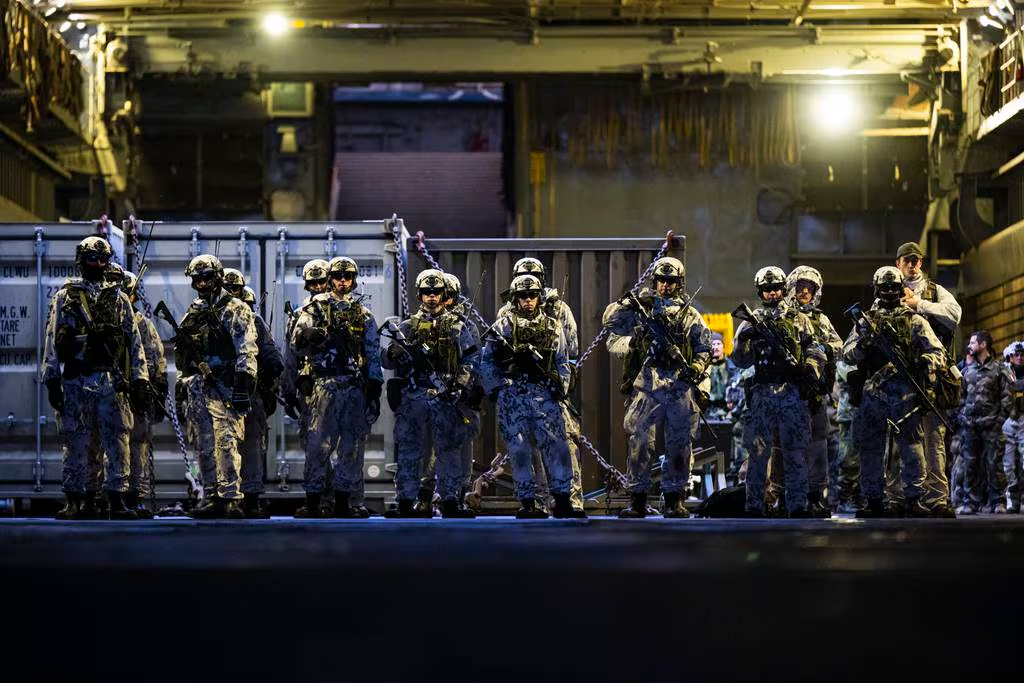
Key Points:
- Nordic governments are considering expanding the NIB’s mandate to include financing for defense companies, reflecting a shift in strategic priorities.
- The proposed move aims to leverage the “Nato-dividend” and strengthen regional defense collaboration.
- The decision to expand the NIB’s scope will require careful consideration of the types of defense investments, financial implications, and transparency mechanisms.
Nordic Investment Bank Explores Defense Funding
A shift in strategic priorities is underway in the Nordic region as governments explore expanding the Nordic Investment Bank (NIB) mandate to include financing for defense companies. This move, spurred by recent geopolitical changes and the increasing focus on national security, could significantly alter the bank’s operations and its role in supporting regional growth.
A Change in Direction
Established in 1975 by the five Nordic states, the NIB was initially conceived as a financial institution dedicated to fostering the growth of non-defense industries within the region and internationally. The addition of Estonia, Latvia, and Lithuania as full members in 2005 further solidified its focus on non-military sectors.
However, the changing global security landscape has prompted a reassessment of the NIB’s role. As André Küüsvek, the NIB’s chief executive, points out, “The world has changed. The NIB hasn’t financed defense companies in the military-industry complex in the past.” This potential shift signifies a departure from the bank’s traditional focus and represents a bold move towards a more comprehensive approach to regional security.
The “Nato-Dividend” and Defense Collaboration
This move follows growing defense collaboration within the region. In the first quarter of 2024, the Finnish Defense Forces (FDF) initiated a project to transfer military equipment to storage facilities in Norway. Similar operations are planned for Sweden in the coming months, demonstrating a tangible commitment to coordinated defense efforts.
Infrastructure, Green Energy, and Security
While the NIB’s traditional focus on infrastructure and green energy projects remains a priority, the potential inclusion of defense funding presents a complex balancing act. The bank’s expertise in financing projects related to wind and hydropower, hydrogen-fueled transportation, and sustainable buildings will need to be harmonized with its potential new role in supporting the growth of defense technologies.
“We want to strike a balance between our existing activities and the additional field of national and regional security,” stated a spokesperson for the Nordic governments, reflecting the delicate negotiation process underway.
Key Issues and Considerations
The expansion of the NIB’s scope to include defense funding raises several key questions:
- Types of Defense Investments: The Nordic governments are debating the specific types of defense-related capital investments eligible for NIB financing. This includes defining the range of acceptable technologies and projects, from advanced weaponry to surveillance systems and cyber defense capabilities.
- Financial Implications: The proposed expansion would require carefully assessing the potential economic impact on the NIB’s operations and its existing funding commitments. The bank’s current lending activities, which include substantial support for research and development, would need to be integrated with the new defense portfolio.
- Transparency and Oversight: The decision to expand the NIB’s mandate to include defense funding will likely be scrutinized by stakeholders concerned with transparency and accountability. Robust mechanisms will need to be established to ensure the responsible and ethical allocation of resources within this sensitive sector.
The final decision regarding the NIB’s expanded role in defense financing rests with the bank’s government owners. A detailed analysis of the potential benefits, risks, and financial implications is crucial to inform this decision. The Nordic region’s strategic interests will be central to this ongoing debate, particularly in light of current global security challenges.
